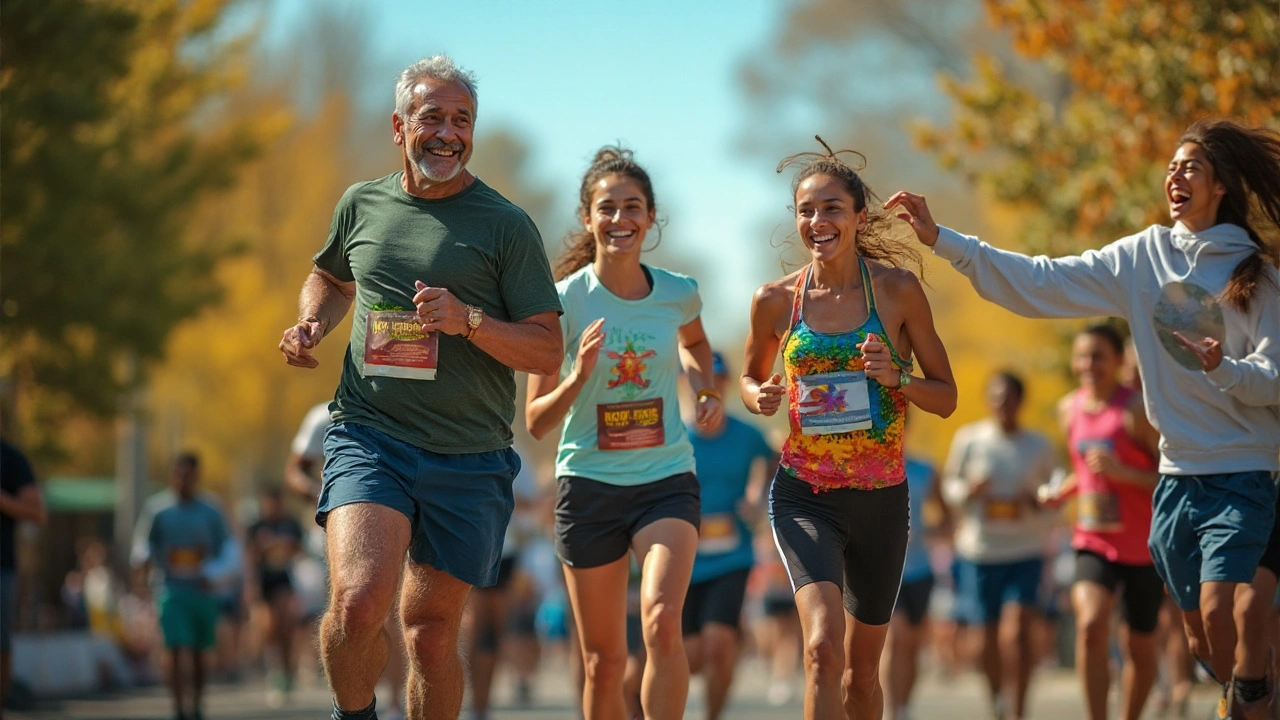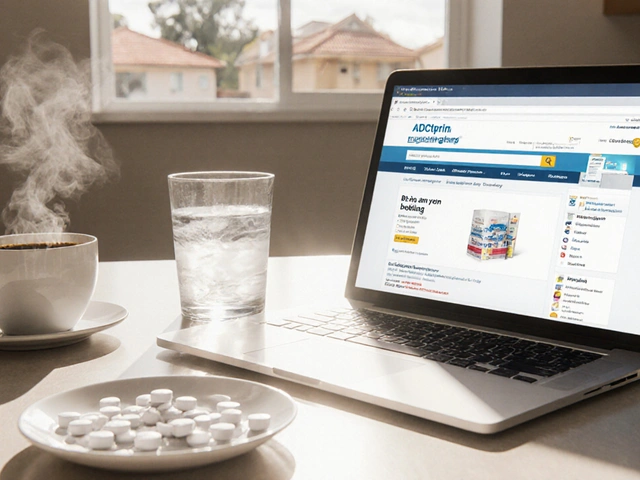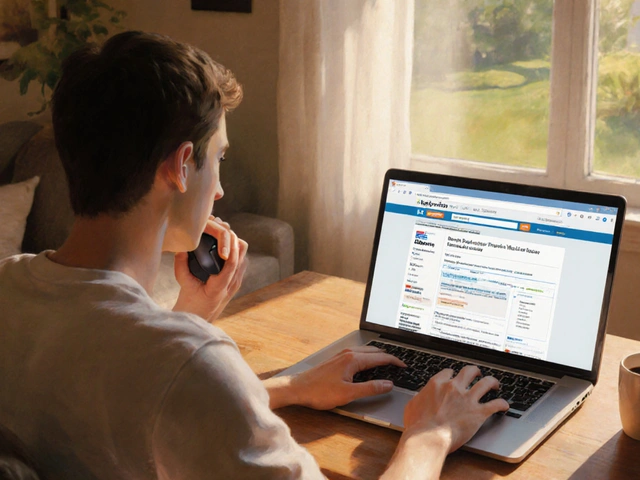Skin is the cover of your story, and when it flares, confidence can quietly shrink. If patches make you dodge photos, skip the beach, or second‑guess a handshake, you’re not weak-you’re human. This guide explains how psoriasis chips away at self-worth, what the science says about mood and stigma, and practical moves you can start today to feel okay in your skin again.
- Self-worth often dips because of visibility, itch, sleep loss, and fear of judgment-not because you’re vain.
- Rates of depression and anxiety are higher in psoriasis; treating skin and mind together works best.
- Simple scripts, micro-exposures, and a steady care plan can rebuild confidence faster than you think.
- Escalate care if symptoms limit life (DLQI >10), involve special sites, or topicals fail after 4-8 weeks.
- Track progress with quick tools (PHQ‑9, Itch NRS, sleep) so you see wins, not just flares.
What’s Really Happening: How Psoriasis Knocks Your Confidence
Psoriasis isn’t just skin-deep. It’s a chronic inflammatory condition that shows up on the surface and messes with daily life-from what you wear to how you sleep. When you add the social pressure of “clear skin equals health,” it’s easy to understand why confidence takes a hit.
Visibility raises the stakes. Patches on the face, scalp, hands, or genitals feel impossible to hide. Even when people are kind, you might still brace for the double take. That anticipation-waiting for the stare or the awkward question-drains you before you’ve said hello.
Then there’s itch. Persistent itch and tenderness push your brain into alert mode. Sleep breaks, patience thins, and minor decisions feel heavy. Chronic itch is linked to lower mood and higher stress in dermatology research across multiple conditions, not just psoriasis.
Shame creeps in through unhelpful thoughts: “They’ll think it’s contagious,” “I look dirty,” “I can’t wear short sleeves.” These aren’t facts-they’re mental shortcuts your brain uses to “protect” you from social pain. But they backfire, making you avoid the gym, the pool, the date, or the meeting where you would have nailed it.
And yes, the mental health stats are real. Meta-analyses in JAMA Dermatology (2019) and the British Journal of Dermatology (2020) report higher rates of depression and anxiety in psoriasis compared with the general population. The American Academy of Dermatology and the National Psoriasis Foundation both recommend routine mental health screening because tackling mood alongside skin improves outcomes.
Quality of life tools like the Dermatology Life Quality Index (DLQI) capture this hit to everyday living. Scores above 10 suggest your skin condition is taking a very large toll-on clothing choices, sports, social events, intimacy, work, and sleep.
| Life area | How it’s measured | Typical impact in moderate-to-severe cases | Source (year) |
|---|---|---|---|
| Mood | Depression/anxiety screening | Depression ~20-30%; anxiety ~30-40% | JAMA Dermatology (2019); BJD (2020) |
| Quality of life | DLQI (0-30) | DLQI >10 in a sizable subset of moderate-to-severe patients | AAD/NPF guidance (2023-2024) |
| Sleep | Self-report / actigraphy | Sleep fragmentation from itch and pain | Dermatology sleep literature (multi-study) |
| Work/school | Absenteeism/presenteeism | Reduced productivity during flares; task avoidance | Health economics studies (psoriasis) |
| Social/intimacy | DLQI items; patient interviews | Avoidance of swimming, gyms, dating; body image strain | NPF patient surveys; qualitative research |
So if your confidence feels shaky, it’s not a character flaw. It’s a predictable response to visible inflammation, discomfort, and social pressure. The good news: confidence is trainable, and symptoms are treatable. Both sides matter.

The Playbook: Daily Moves to Protect Your Self‑Esteem
Think of self-esteem like a muscle. You don’t fix it with one motivational quote-you build it with small, consistent reps. Here’s a practical plan that combines mind skills, symptom control, and social strategy.
plaque psoriasis may be the headline, but the day-to-day story is yours. Start here.
-
Reframe the story (simple CBT in 90 seconds). Grab a note on your phone. Make three columns: Trigger → Thought → Alternate thought.
- Trigger: “Coworker stared at my hand.”
- Thought: “He thinks I’m contagious.”
- Alternate: “People stare at anything unusual. If he asks, I’ll say it’s an autoimmune condition and not contagious.”
That tiny rewrite cuts the adrenaline spike. Do this three times a day for a week. It’s a small lift with a real payoff-cognitive behavioral techniques have strong evidence for reducing anxiety and negative self-talk in dermatology patients.
-
Use micro-exposures (confidence ladder). Avoidance grows fear. Exposure shrinks it. Build a ladder from easy to hard:
- Step 1: Wear short sleeves on a quiet walk.
- Step 2: Short sleeves to the café.
- Step 3: Short sleeves at a social event.
Repeat each step until nerves drop by half. Then move up. This is the same logic therapists use for social anxiety-steady exposure rewires the fear loop.
-
Script the awkward moments. Having words ready lowers stress. Try these:
- Curious stranger: “It’s psoriasis-an autoimmune skin thing. Not contagious. It can look rough when it’s healing.”
- Work setting: “My skin flares sometimes. If I step out to apply treatment or cool down, I’ll be right back.”
- Dating: “You may notice patches. It’s a chronic condition I manage. Happy to answer questions.”
-
Set up a skin routine you can actually keep. Consistency beats perfection. A realistic baseline:
- Mild, fragrance-free wash; lukewarm showers.
- Thick moisturizer within 3 minutes after bathing.
- Topical plan: steroids or steroid-sparing agents as prescribed; stick to the schedule to avoid rebound.
- Itch toolkit: cool packs, bland emollients, brief mindfulness breath (five slow exhales) instead of scratching.
-
Sleep like it matters (because it does). Itch and poor sleep worsen mood and pain sensitivity.
- Cool your bedroom; keep nails short; cotton sheets.
- Avoid heavy alcohol and big meals late-they spike itch and fragment sleep.
- Pre-bed routine: moisturize, light stretch, no doomscrolling the last 30 minutes.
-
Train self-talk with one line. Pick a line that is true and repeatable: “I’m not my skin.” Or, “This looks loud; I’m still me.” Say it when you catch your reflection or feel a twinge of shame. It sounds simple. It works because repetition wins against one-off pep talks.
-
Move your body for mood, not punishment. Brisk walks, swimming in a rash-guard, low-impact strength. Exercise lowers inflammatory markers and lifts mood. Aim for most days, 20-30 minutes. If you’re flaring, cut intensity, not frequency.
-
Choose clothes that help you forget your skin. Breathable fabrics, darker tones if flaking bothers you, rash guards for sun and friction, hats for scalp confidence. Dressing for comfort and control reduces mental load.
-
Use evidence to guide treatment tiers. Here’s a quick rule of thumb often reflected in dermatology guidelines:
- Mild (small areas, minimal life impact): topicals, targeted phototherapy.
- Moderate-to-severe (BSA >10%, special sites like face/genitals/hands/feet, nail disease, or DLQI >10): consider systemic therapy or biologics.
- If topicals fail after 4-8 weeks, or life impact is high, ask about phototherapy, conventional systemics (e.g., methotrexate, cyclosporine), or modern biologics (IL‑17, IL‑23, TNF inhibitors). As of 2025, these options are widely used when criteria are met.
Why this matters for confidence: clearer skin usually lifts mood. Studies show improvements in DLQI and depression scores when inflammation comes down, especially with effective systemic or biologic therapy. If your life is on hold, that’s a sign to escalate care, not to “tough it out.”
-
Treat the mind as part of the plan. Brief therapies-CBT, acceptance and commitment therapy, and mindfulness-have good data for reducing distress in skin conditions. If cost or access is tight, try reputable digital CBT programs or group formats. In Australia, your GP can discuss mental health plans that help with access to sessions. If you ever have thoughts of self-harm, that’s an urgent medical issue-reach out for immediate help.
-
Food, alcohol, and smoking-use simple switches. There’s no single psoriasis diet, but here’s what’s most consistent across studies:
- Reduce heavy drinking; alcohol can worsen flares and mood.
- If you have extra weight, gradual loss helps disease severity and quality of life.
- Eat a steady base: plants, lean proteins, healthy fats. Keep spicy or acidic foods if they don’t trigger you-personal tolerance matters.
- Smoking makes psoriasis and mood worse. If you smoke, quitting is one of the best gifts you can give future-you.
-
Boundaries for social media. Unfollow accounts that make you feel smaller. Follow dermatology-led, patient-positive voices. Share only when you want to, not to educate the world on cue.
-
Track what you can change; ignore what you can’t. Once a week, jot down:
- Itch (0-10), sleep quality (0-10), mood (PHQ‑9 short form if you have it), and a selfie under the same light.
- One win: “Wore shorts; friend didn’t care.”
Progress is easier to see on paper than in your head.
- Decision rule (when to push for more help): If psoriasis limits clothing, work, dating, or sport-or involves the face, scalp, genitals, hands/feet-or if DLQI >10, ask your clinician about stepping up therapy. If low mood lingers 2+ weeks, talk with a GP or mental health professional.

Real Talk: Questions, Roadblocks, and Next Steps
Confidence dips are normal. You don’t have to white-knuckle through them. Here are honest answers and practical next steps for common snags.
FAQ
-
Will people think it’s contagious? Some will wonder. Clear, short answers work: “It’s an autoimmune skin condition-not contagious.” Research on public stigma shows simple, direct explanations reduce awkwardness more than long speeches.
-
Does stress cause flares? Stress doesn’t cause psoriasis, but it can flare it. Flares also create stress-a loop. Breaking the loop with sleep, exercise, brief mindfulness, and solid treatment helps both skin and mood.
-
Sun-friend or foe? Modest, protected sun can help some people, but burns trigger flares (Koebner phenomenon). Think careful exposure or supervised phototherapy, not all-day sunbathing.
-
Will diet fix it? No single diet cures psoriasis. But cutting heavy alcohol, stopping smoking, and steady, plant-forward eating support better outcomes. Weight loss, if needed, improves response to treatment.
-
What about intimacy? Honesty beats guessing. Use a line like, “You may notice patches-psoriasis isn’t contagious. If something feels sore, I’ll say so.” Lubricants and gentle positioning help when areas are tender. Partners usually care way less about patches than you think.
-
Should I tell my employer? If you need flexibility (phototherapy visits, short breaks for treatment), disclosure can help. Keep it simple and solution-focused: what you need and how it protects your productivity.
-
Can medication help mood too? When skin improves, mood often lifts. If depression or anxiety persists, discuss options with your clinician. Some antidepressants can be used alongside psoriasis treatments; medication choices should consider your full health picture.
Checklists you can use this week
- Your confidence mini-kit: pocket moisturizer, cool pack or cooling spray, two scripted lines, a hat or scarf you like, one calm playlist.
- Clinic conversation prompts: “My DLQI is about __.” “Flares affect my work/sleep this way: __.” “Topicals helped/didn’t help because __.” “What’s our plan if this isn’t better in 8 weeks?”
- Social exposure ladder: home balcony → local café → friend’s BBQ → gym swim session (rash guard) → beach day (choose a time you feel safest).
Troubleshooting by scenario
-
If topicals aren’t cutting it: Document your use and results for 4-8 weeks. Note special sites (face, genitals, hands/feet), nail changes, pain, sleep disruption, and DLQI. Bring this to your clinician and ask about phototherapy or systemic/biologic options. In many countries, including Australia, access to subsidised advanced therapies depends on severity criteria-clear documentation helps.
-
If your mood is the main struggle right now: Keep any skin routine you can manage, and put energy into short, effective mental health supports: digital CBT program, 20‑minute daily walks, regular sleep, and one social exposure per week. If PHQ‑9 suggests moderate depression or you have any thoughts of self-harm, see a clinician urgently.
-
If dating feels impossible: Shift the goal from “no one notices” to “I stay grounded when they do.” Use your script. Choose venues you control (quiet café over a crowded club). End on your terms if it’s not a fit. One win builds momentum.
-
If the gym triggers shame: Pick times when it’s quiet; wear kit that feels good; bring a towel to manage flakes on benches. Remind yourself: “This is hygiene, not hiding.”
-
If you’re a parent of a teen with psoriasis: Focus on validation and independence. Help them craft two short scripts, set up micro-exposures, and advocate for treatment escalation if school life is suffering.
Next steps (simple and doable)
- Write your two-line explanation and practice it out loud.
- Build a three-step exposure ladder and do step one today.
- Set a repeating reminder to moisturize after your shower.
- Track itch, sleep, mood weekly for a month. Bring the notes to your next appointment.
- Ask your clinician directly: “If this plan doesn’t ease things in 8 weeks, what’s our next step?”
Why this approach works
Confidence grows when you feel competent and connected. You get competence from routines you can actually keep and treatments that match your disease severity. You get connection from honest scripts and small exposures that prove most people are kinder than your fears predict. Add sleep and movement, and you’ve covered the big levers that move both skin and mood.
Psoriasis can be loud. Your life can still be bigger. Start tiny. Be consistent. Escalate when needed. And keep your story louder than your skin.







Krishna Sirdar
30 Aug, 2025
Reading through this guide feels like being handed a roadmap for both skin and spirit. It reminds us that the body’s signals are not just medical facts, but also stories about how we navigate a world that often judges appearance. When a flare comes, the itch isn’t just a symptom-it’s a reminder that we need compassion for ourselves. The practical steps you listed are like mindfulness exercises for the skin, turning routine care into a quiet act of self‑respect. Keep sharing this blend of science and empathy; it gives many the courage to face their mirrors again.
becca skyy
5 Sep, 2025
Totally agree, the micro‑exposure ladder is a game‑changer.
Theo Roussel
12 Sep, 2025
The section on cytokine pathways really nails the pathophysiology. Targeting TNF‑α and IL‑17 can dampen keratinocyte hyperproliferation, which correlates with reduced PASI scores. Moreover, incorporating phototherapy leverages UV‑B induced apoptosis of T‑cells, complementing systemic biologics. It’s essential to align treatment escalation with DLQI thresholds to optimize both dermatologic and psychosocial outcomes. Your checklist neatly bridges the clinical and the lived experience.
Erick Masese
19 Sep, 2025
While the guidance is solid, one must remember that not every patient thrives on a one‑size‑fits‑all protocol. Precision medicine demands that we evaluate comorbidities, lifestyle, and even socioeconomic constraints before prescribing high‑cost biologics. The language used here is commendably accessible, yet a touch of clinical rigor could aid those navigating insurance formularies. Still, the emphasis on holistic care aligns with best‑practice standards, and I applaud the balanced tone.
Matthew Charlton
26 Sep, 2025
Great points! I love how you’re encouraging small wins-those are the building blocks of lasting confidence. Remember to celebrate each step, even if it’s just wearing a short‑sleeve to the grocery store. Consistency beats perfection every time, especially when juggling work and skin care. Keep the momentum, and soon those ladders will feel like a stroll in the park.
Pamela may
3 Oct, 2025
Okay, let me unpack this a bit because there’s a lot to chew on. First off, the idea that confidence is a muscle is spot on; you can’t expect massive gains overnight, so the incremental approach makes sense. Second, the CBT three‑column trick is a neat hack-write the trigger, the thought, then a sane alternate, and you’ve already cut the anxiety loop in half. Third, micro‑exposures sound simple, but I’ve seen folks trip over the first step because they’re too hard on themselves if they don’t nail it right away.
Fourth, the script examples are golden; having a ready‑made line takes the pressure off the moment you’re asked a stupid question. Fifth, the skin‑care routine you suggested is realistic-no need for a 10‑step ceremony that nobody can stick to when they’re stressed. Sixth, the sleep tips are evidence‑based; cool rooms and short wind‑downs really do reduce nocturnal itch spikes.
Seventh, the reminder to track itch, sleep, and mood each week is crucial-data beats feelings when you’re arguing with a doc about escalation. Eighth, the diet section wisely avoids miracle claims while still nudging people toward lower alcohol and smoking cessation, which, honestly, are the biggest game‑changers I’ve seen.
Ninth, the part about intimacy is brave; most guides shy away from that, but being upfront with partners can actually deepen trust. Tenth, the advice to set boundaries on social media is underrated-curating your feed can protect your mental space. Eleventh, the “when to push for more help” rule is a clear call‑to‑action that many patients need to hear.
Twelfth, the overall tone feels supportive without being patronizing, which is a fine line to walk. Thirteenth, the checklist format at the end gives readers tangible next steps, turning theory into practice. Fourteenth, the emphasis on both skin and mind reinforces that you can’t treat one without the other.
Fifteenth, the inclusion of tools like PHQ‑9 and DLQI empowers patients to speak the same language as their physicians. Finally, the reminder that if thoughts of self‑harm appear, you must seek immediate help is a vital safety net. All in all, this is a comprehensive, empathetic guide that translates science into daily life. Keep it up!
tierra hopkins
10 Oct, 2025
I love how you’ve taken all that detailed advice and turned it into a clear action plan. The optimism here is contagious, and it reminds us that small, consistent steps really do add up. Let’s keep this momentum going and make those exposure ladders a regular part of our week.
Ryan Walsh
17 Oct, 2025
Quick tip: set a phone alarm for moisturizing right after you shower so you never miss it.
Kiersten Denton
24 Oct, 2025
Sounds solid, thanks for the reminder.
Karl Norton
31 Oct, 2025
Honestly, some of these “micro‑exposures” feel like a flimsy Band‑Aid for a serious chronic condition. People need more than ladders; they need aggressive treatment early, not a gentle nudge.
Ashley Leonard
7 Nov, 2025
Interesting point! While exposure can help, pairing it with early systemic therapy might give the best outcomes-especially for those with high DLQI scores.
Ramanathan Valliyappa
14 Nov, 2025
Minor correction: “its” should be “it's” in the sentence about “its impact”.
lucy kindseth
21 Nov, 2025
One last tip: consider joining a local psoriasis support group-sharing experiences can boost confidence faster than any checklist.